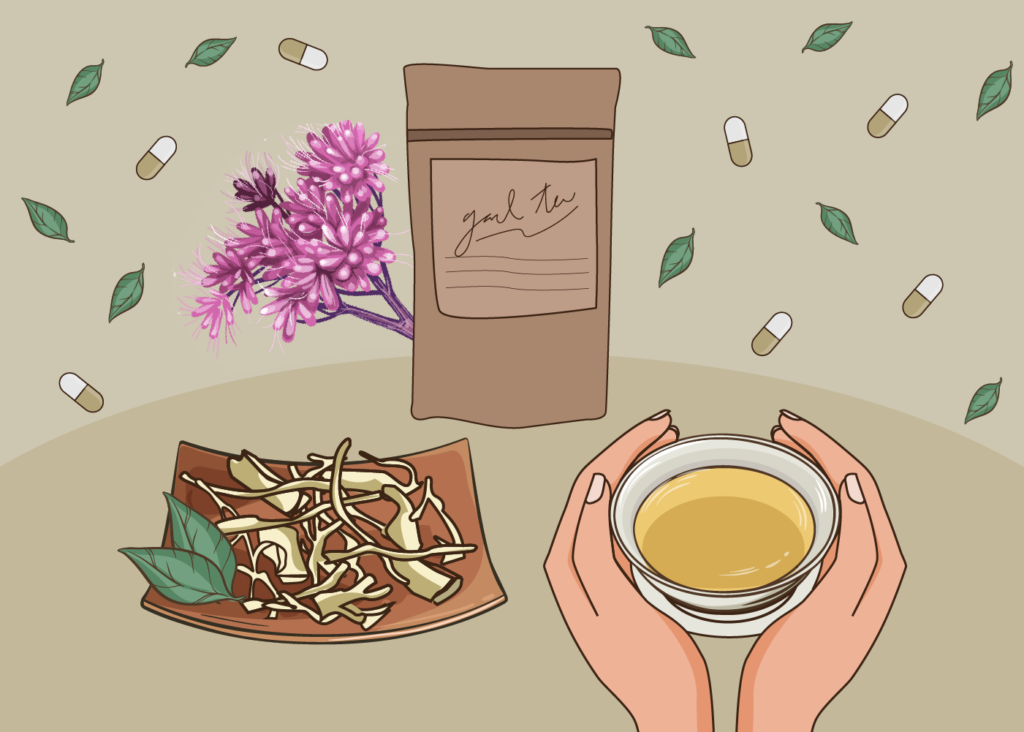Named after its purported abilities to prevent kidney stones and dissolve them into gravel, gravel root tea is a common home remedy among kidney stone patients. While that sounds promising, evidence for the benefits of gravel root tea remains anecdotal at best.
What is gravel root tea?
Gravel root, also known as “Joe Pye” weed or Eupatorium purpureum, is a tall flowering plant, known for its beautiful pink-hued flowers and vanilla scent. Gravel root tea leaves are commonly made from its dried roots1.
Why do people believe that gravel root tea can cure kidney stones?
It is believed that Native American Indians relied on gravel root tea to treat a variety of urological conditions, including kidney stones2. This could be due to its diuretic effects3, which could have alleviated symptoms of urinary retention and kidney edema.
Herbalists today claim that gravel root tea can prevent the formation of kidney stones, though it is unclear why.
Can gravel root tea prevent or treat kidney stones?
Simply put, no studies have been done to assess the effectiveness of gravel root tea for kidney stones.
While several kidney stone patients have shared their success stories, it is also possible that their success could have been due to other factors, such as dietary changes or fluid intake. Without any clinical research, it cannot be proven that gravel root tea is effective in preventing or treating kidney stones.
In Summary
It is unlikely that gravel root tea is the herbal cure to your kidney stones, especially due to the lack of scientific evidence on its use and efficacy.
In addition, there are existing concerns that gravel root tea may contain unsafe amounts of hepatoxic pyrrolizidine alkaloids, which may block blood flow in the veins and cause further medical issues3. Gravel root tea may also interact with several medications. We highly recommend consulting your urologist before starting on any new supplements.
Sources:
- Winston, D. (n.d.). Sy herbal and nutritional treatment – american herbalists guild. Retrieved June 6, 2022, from https://www.americanherbalistsguild.com/files/journal/vol%2010%20no%202/Kidney%20Stones%20V10N2.pdf
- Mars, B. (n.d.). The Desktop Guide to Herbal Medicine. Google Books. Retrieved June 6, 2022, from https://books.google.com.sg/books?id=DphYqIEOz1UC&pg=PA125&lpg=PA125&dq=Native%2BAmerican%2BIndians%2Bkidney%2Bstone%2Bgravel%2Broot&source=bl&ots=EcMb_Hz1C6&sig=ACfU3U0KYf3gB9RTtS4zMKqMI2Zze_HfLA&hl=en&sa=X&ved=2ahUKEwjfh6Lh6JX4AhXDW3wKHdOcBWIQ6AF6BAgUEAM#v=onepage&q=Native%20American%20Indians%20kidney%20stone%20gravel%20root&f=false
- RxList. (2021, June 11). Gravel root: Health benefits, side effects, uses, Dose & precautions. RxList. Retrieved June 6, 2022, from https://www.rxlist.com/gravel_root/supplements.htm





